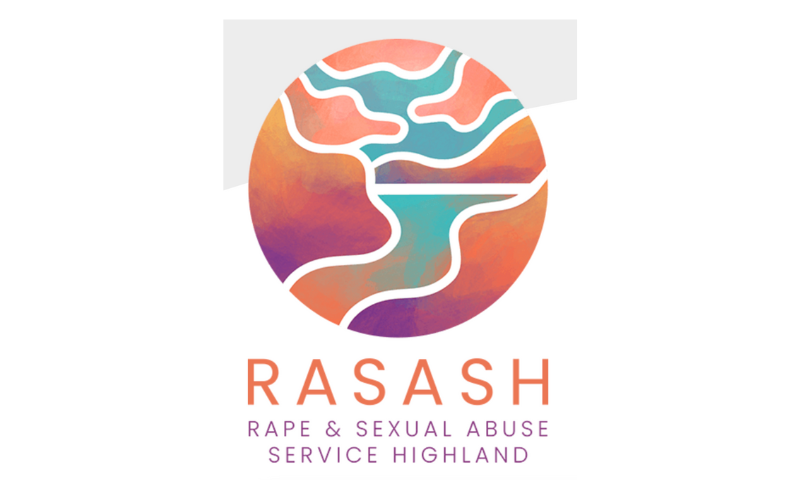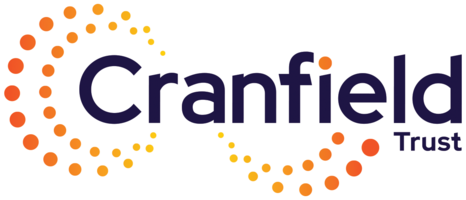
Background
RASASH (Rape and Sexual Abuse Service Highlands) are based in Inverness and provide vital support across the vast Highland region of Scotland. The Highland region of Scotland is roughly the same size as Belgium and RASASH are the only service in Highland Region offering the range and depth of support that they do.
Issue
Marketing charities that deal with sexual violence has traditionally been a very difficult topic. Eilidh Little, RASASH’s Fundraising and Communications Worker, approached Stephen Cahill, Cranfield Trust’s Regional Manager for Scotland, to discuss how Cranfield Trust might be able to support RASASH and augment what they were already doing in this area.
Stephen and Eilidh discussed at length how Cranfield Trust could use its different support options to work with RASASH on this topic and agreed that matching a skilled volunteer management consultant with RASASH to work on a project to review their marketing and expand their engagement with potential donors would be the best form of support that Cranfield Trust could bring. The thinking in this case was that matching a skilled volunteer from outside the sector would bring an external and complimentary view to RASASH’s current marketing skills and help them to explore different and novel approaches to marketing their services.
Solution
Stephen matched Stuart Oliver, a Cranfield Trust Volunteer Management Consultant with significant experience in marketing, business planning and strategy, to support RASASH to review their marketing strategy and explore further how to raise their profile about a topic that is traditionally difficult to market. Following their successful collaboration, Eilidh, and Stuart, kindly shared some of their project learning which they believed could be of value to other charities in this field.
Whilst RASASH were well known and regarded in the health and social care sector, the wider local business community were less aware of RASASH’s work and ways they could support it. Potential donors were unaware that RASASH is a fundraising charity rather than a statutory service and, relies on donations and funding to deliver its work.
As Eilidh pointed out:
“Like many charities, RASASH have limited capacity to deliver our communications and fundraising work and to build a sustainable presence and audience we would like. RASASH are in a competitive charity fundraising landscape, both nationally and locally, so it can be hard to stand out from some of the bigger charities who have more resources.”
With his marketing and commercial eye, Stuart noted:
“Marketing a service like RASASH’s means finding a way of framing the ‘ask’ in such a way that donors see their support as an important part of supporting the local community. This, and thinking about how that ‘ask’ could be amplified by using ambassadors for RASASH was something that would be key to short term success and also sustainability’
Impact
Working together, Eilidh and Stuart decided on the following key areas of focus for RASAHS’s marketing strategy:
- Focusing on a 'vital few', key marketing approaches and doing them really well. This would help to manage limited capacity whilst also having the most impact.
- Building fresh engagement points with potential donors. Sexual violence is a taboo and challenging topic. The work RASASH does is lifechanging and showing donors the key role in supporting survivors through donations of funds, time, or skills was going to be vital to building sustainable relationships with donors. Eilidh and Stuart challenged this taboo creatively by agreeing to raise awareness of it with potential donors so, empowering them to make a huge difference to their local communities. Building partnerships with potential donors and using them as ‘ambassadors’ for RASASH was a key part of this thinking.
- Highlighting that RASASH is a vital charity and not a statutory service, and that they rely on donations and funding. Shifting this perception would help wider donors to see RASASH as a local charity that they could support actively and see their support ‘reading across’ as a direct benefit to their local community.
- Amplifying RASASH’s strengths and unique selling points to stand out from other charities. This included being the only service in Highland region offering the support that the do, the prevention work they do with young people and their deep expertise to deliver specialised training to other organisations. At every point, Eilidh and Stuart looked at areas where RASASH’s deep expertise and quality of experience could be monetised to support sustainable income with potential donors.
For other charities facing similar challenges elsewhere in the UK, Eilidh would share the following lessons:
- Be open to learning new skills to see your plans come to fruition – the team and Board will need some skills development to help the strategy come to life.
- Be prepared for plans to not always be linear and to take up opportunities that may come along unexpectedly. For example, our plan was to build up our profile before seeking Charity Ambassadors. The opportunity came up before we had truly embarked on our profile building so we embraced it. We’ll adapt our profile building strategy to reflect this and use this to our advantage.
- Really understand the things that you can do really well – this is your bedrock and then look to explore how you can use this expertise to connect with potential donors – what problem are you solving or what need are you able to satisfy for them?
- Tap into the expertise of a free resource like a volunteer with the Cranfield Trust – the expertise and time of an individual with the know how is invaluable!



